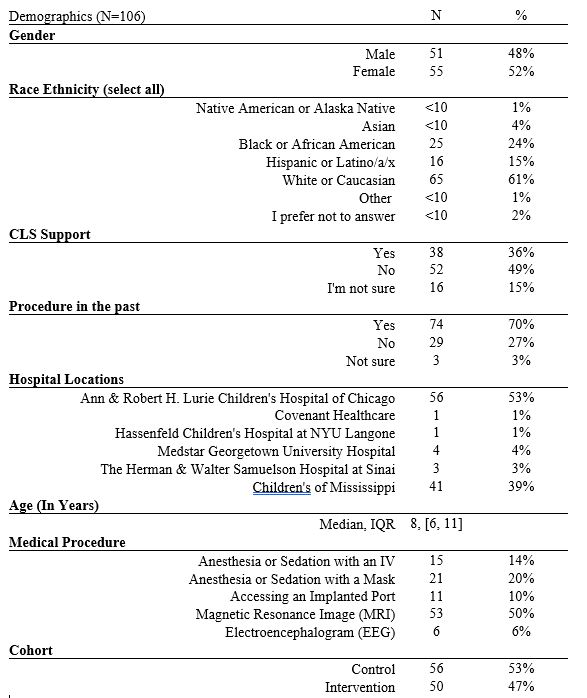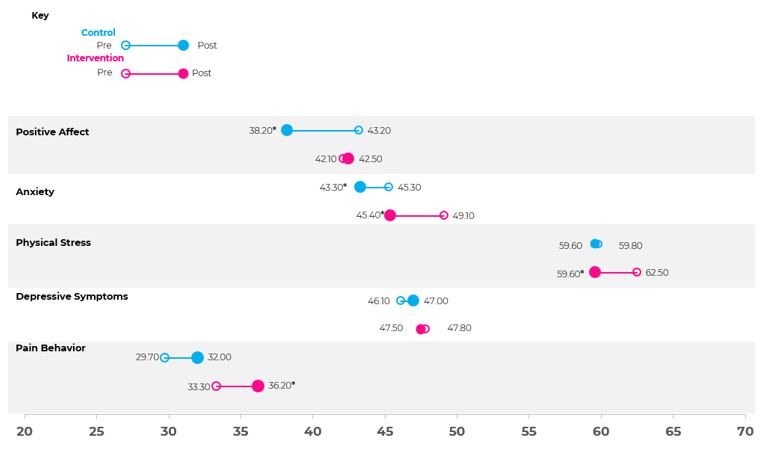General Pediatrics 2
Session: General Pediatrics 2
718 - Parent-Reported Impact of Super Rewards for Super Kids Program on Children’s Symptoms During Difficult Medical Procedures
Friday, April 25, 2025
5:30pm - 7:45pm HST
Publication Number: 718.5826
Leonardo Barrera, Ann & Robert H. Lurie Children's Hospital of Chicago, Chicago, IL, United States; Zecilly Guzman, Ann & Robert H. Lurie Children’s Hospital of Chicago, Cicero, IL, United States; Emily Golbeck, Ann & Robert H. Lurie Children's Hospital of Chicago, Chicago, IL, United States; Carolyn Fung, Hope for Henry Foundation, Washington, DC, United States; Laurie Strongin, Hope for Henry Foundation, Washington, DC, United States; Matthew M. Davis, Nemours Children's Hospital, Wilmington, DE, United States
- LB
Leonardo Barrera, MPH (he/him/his)
Reasearch Scientist
Ann & Robert H. Lurie Children's Hospital of Chicago
Chicago, Illinois, United States
Presenting Author(s)
Background: Medical procedures and hospital experiences can be painful and traumatizing for pediatric patients. Patients who experience these are also more likely to disengage in their care, become uncooperative with providers, and exhibit non-adherence. Understanding how behavioral incentivize programs affect children during difficult medical procedures, in conjunction with support from Certified Child Life Specialists (CCLS), could enhance support services offered in children’s hospitals.
Objective: To measure the impact that the Super Rewards for Super Kids™ Program developed by Hope for Henry has on children’s symptoms and well-being during difficult medical procedures.
Design/Methods: From August 2021-November 2022, parents and caregivers of children 3-17 years old undergoing qualifying medical procedures at hospitals across the US were asked to participate. Enrollment occurred at 5 hospitals using Super Rewards and 1 hospital where the Super Rewards program was not implemented. Pre- and post-procedure surveys were completed by parents/caregivers, collecting demographics, Patient Reported Outcomes (PROs) and feedback on the Super Rewards program. Univariate descriptive statistics were performed and paired t-tests for differences in PROs were conducted.
Results: A total of 106 participants (n=50 in intervention group; n=56 in control group) completed pre and post surveys for their child’s qualifying medical procedure. Demographic characteristics of the children are presented in Table 1. Overall, 75% of parents in the intervention group reported Super Rewards had a substantially positive impact on their child’s experience. Pre-vs-post scores for all tested domains are presented in Figure 1. Within the control group there were statistically significant decreases in scores for the Positive Affect (45.3±8.9 v. 43.3±8.5) and Anxiety domains (43.2±12.9 v. 38.2±15.2). Within the intervention group, there were differences in scores for the Anxiety (49.0±8.7 v. 45.4±8.3), Physical Stress (62.5±10.1 v. 59.6±8.4) and Pain Behavior (33.3±10.8 v. 37.8±10.6) domains.
Conclusion(s): Findings from this exploratory study suggest that a novel intervention may help improve affect and reduce stress among children undergoing stressful procedures as inpatients. This study augments the evidence of meaningful work and outcomes that CCLS provide to patients and their families. Given the limited CCLS resources available in most children’s healthcare settings, these encouraging findings may serve as a foundation for broader implementation and evaluation of impact for interventions that can be provided independent of, or in addition to, CCLS.
Table 1. Study Sample Demographics

Figure 1. Mean Score Change (Pre- to Post-Procedure) Within All PROMIS Domains, As Reported by Parents/Guardians of Study Participants.
 *denotes a statistically significant difference of p ≤0.05
*denotes a statistically significant difference of p ≤0.05 
